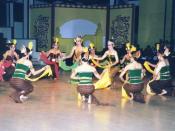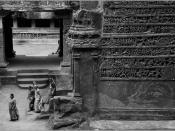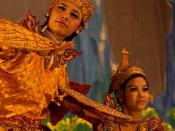In the early patriarchal era of the Ramayana, men dominated over the Indian societies. All areas of social prominence were entirely run by men in the form of warriors, priests and tribal chiefs. Women had very little or no power at all in the political and public arena. They were raised to look after their families as well as being dutiful wives. Women had the task of being loyal, faithful, loving and compassionate towards their husbands. Individual families were normally set up on a "Male authority" basis, with the husband and father determining fundamental conditions and making the key decisions for their well being. Women's main role in society was that of influencing their family by providing love and affection to their husbands and children while the man was in charge of satisfying his family's needs.
Male oriented societal values allowed little or no space for women to express their interests and be influential in their everyday lives.
Women were traditionally expected to serve their husbands and to have no autonomous interests. Only men could be rulers and leaders in the patriarchal society where the story of the Ramayana developed. Rama once said on his designation as prince regent: "Mother, my father has appointed me to the task of protecting the people" (Mack 584). This passage clearly illustrates how power was transferred from father to son in order to provide for the people's needs and for the community as a whole. Rama then as a leader of society must enforce values among others and express his desire to bring remarkable attributes to the people that surround him. "Sovereignty falls to your share, too, for you are my second self" (585). The need for a sovereign ruler is thus expressed among the community and desired for all individuals in the...


